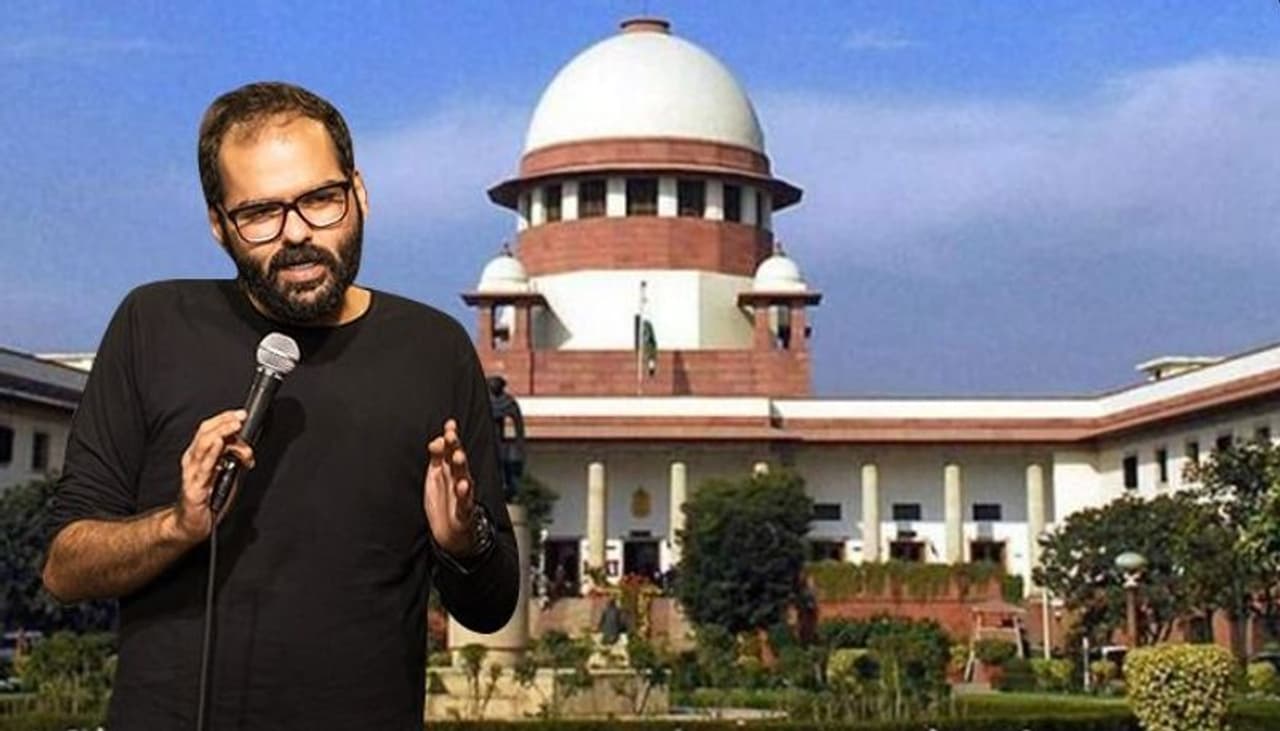- Home
- India
- Top Stories
- Comedian Kunal Kamra won't apologise to SC, says 'taking offence is today a national sport'
Comedian Kunal Kamra won't apologise to SC, says 'taking offence is today a national sport'
Stand-up comedian Kunal Kamra has refused to apologise for his Twitter posts condemning the Supreme Court, stating that public's faith in the judiciary is founded on the institution's own actions and not on any criticism or commentary about it.

<p>In an affidavit filed in response to the contempt notice by the Supreme Court, Kamra said: "The suggestion that my tweets can shake the foundations of the most powerful Court of the world is an overestimation of my abilities." <br /> </p><p>"Just as the Supreme Court values the faith public places in it, it should also trust the public not to form its opinions of the Court on the basis of a few jokes on Twitter. The public's faith in the judiciary is founded on the institution's own actions and not on any criticism or commentary about it," Kamra said.<br /> </p><p>He also said, "There is no defence needed for jokes and it is based on the comedian's perception."</p>
In an affidavit filed in response to the contempt notice by the Supreme Court, Kamra said: "The suggestion that my tweets can shake the foundations of the most powerful Court of the world is an overestimation of my abilities."
"Just as the Supreme Court values the faith public places in it, it should also trust the public not to form its opinions of the Court on the basis of a few jokes on Twitter. The public's faith in the judiciary is founded on the institution's own actions and not on any criticism or commentary about it," Kamra said.
He also said, "There is no defence needed for jokes and it is based on the comedian's perception."

<p>The contempt cases against Kamra stem from his tweets attacking the Supreme Court for granting bail to Republic TV Editor-in-Chief Arnab Goswami after his arrest in an abetment to suicide case.<br /> </p><p>Attorney General KK Venugopal had on November 12 last year given the go-ahead for initiating contempt of court proceedings against Kamra based on complaints from various law students and lawyers.<br /> </p><p>Venugopal had stated that Kamra's tweets were "in bad taste" and "crossed the line between humour and contempt".</p>
The contempt cases against Kamra stem from his tweets attacking the Supreme Court for granting bail to Republic TV Editor-in-Chief Arnab Goswami after his arrest in an abetment to suicide case.
Attorney General KK Venugopal had on November 12 last year given the go-ahead for initiating contempt of court proceedings against Kamra based on complaints from various law students and lawyers.
Venugopal had stated that Kamra's tweets were "in bad taste" and "crossed the line between humour and contempt".
<p>In his affidavit, Kamra said that there is a "growing culture of intolerance in the country, where taking offence is seen as a fundamental right which has been elevated to the status of a much loved national sport".<br /> </p><p>"It is funny though, how little faith the Petitioner appears to have in the people of this country. The suggestion that my tweets could shake the foundations of the most powerful court in the world is an over-estimation of my abilities."<br /> </p><p>"I believe that constitutional offices, including judicial offices -- know no protection from jokes. I do not believe that any high authority, including judges, would find themselves unable to discharge their duties only on account of being the subject of satire or comedy," he added.</p>
In his affidavit, Kamra said that there is a "growing culture of intolerance in the country, where taking offence is seen as a fundamental right which has been elevated to the status of a much loved national sport".
"It is funny though, how little faith the Petitioner appears to have in the people of this country. The suggestion that my tweets could shake the foundations of the most powerful court in the world is an over-estimation of my abilities."
"I believe that constitutional offices, including judicial offices -- know no protection from jokes. I do not believe that any high authority, including judges, would find themselves unable to discharge their duties only on account of being the subject of satire or comedy," he added.